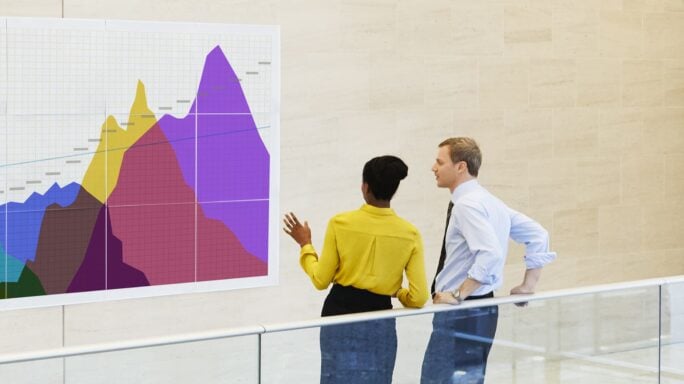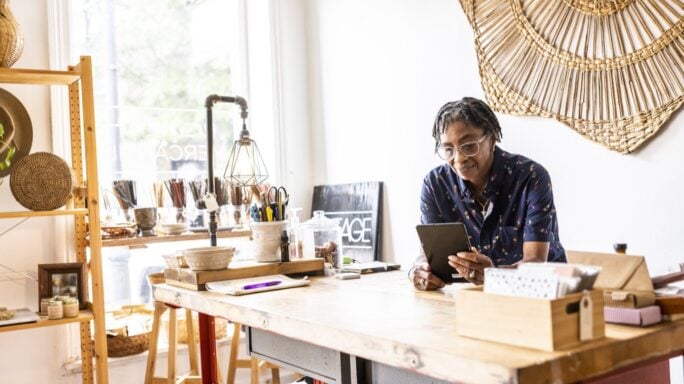Compliance
VAT toolkit for small businesses

Understanding the nuances of Value Added Tax (VAT) can mean the difference between a business that thrives and one that struggles to survive.
In this article, we unpack the fundamentals of VAT, how it might apply to your small business, and when to register for VAT. We also cover important VAT do’s and don’ts to help you avoid potential pitfalls.
What is VAT?
VAT was introduced in South Africa in September 1991, replacing a pre-existing regime known as the General Sales Tax (GST). VAT is an indirect tax based on consumption in the economy. This means it is levied on goods and services, not on your personal income or corporate profits. VAT is currently levied at the standard rate of 15% on most supplies and importations, but there is a limited range of supplies of goods or services which are either exempt or which are subject to tax at the zero rate.
Once you’re registered as a VAT vendor (we’ll deal with when to register in a moment),
vendors are charged with the responsibility of levying VAT (output tax) and paying it over to the SARS after deducting permissible VAT inputs and other deductions.
To illustrate – let’s say your small business manufactures and sells eco-friendly bicycles (see Figure 1). Here is how VAT comes into play:
- It costs R800 (excluding VAT) to make one bicycle.
- You’d like to make R200 profit per unit, so you sell the bicycles for R1,000 (excluding VAT) each.
- As a VAT vendor, you must add 15% to your selling price, taking the selling price to R1,150.
- The additional VAT amount of R150 (1000*15%) that you’ve collected from the buyer is known as output tax.
Figure 1: Example of VAT Financial Implications

Output tax creates a VAT liability because you now owe that money to SARS.
However, as a VAT vendor, you can reduce your VAT liability by deducting input tax. This is the amount of VAT you paid on the expenses you incurred to manufacture the bicycle. In this case, your input tax would be R120 (800*15%). If you had bought the bicycles for R800 (including VAT), the denominator for your input would be different, as the VAT amount would be included in the R800 (i.e., 800*15/115).
By offsetting your output and input tax, your VAT liability is reduced to R30.
You’d then submit your VAT return to SARS, detailing both your input and output tax, along with a payment of R30.
Sounds simple, right? Not entirely, here we’ve used a simple example to illustrate the basics of VAT. But in the real world, not all goods and services are classified as standard-rated supplies that attract VAT. There are also zero-rated and exempt supplies, which complicates things.
VAT nuances to know about
There may be instances where you won’t be able to charge output tax on the goods or services you sell, nor will you be able to deduct input tax for the expenses you incur. Let’s explore zero-rated and exempt supplies in the context of your eco-friendly bicycle business.
Zero-rated supplies
Your bicycles have gained international acclaim, and you’ve begun exporting them. Assuming a direct export arrangement – where you take full responsibility for delivering the bicycle to the buyer in another country – your bicycle would be classified as a zero-rated product, so you’d charge 0% VAT on your tax invoice.
Note that zero-rated supplies are still considered ‘taxable’ – we’ll make sense of this when we look at exempt supplies in the next section. The result is that, even though you’re charging 0% VAT on your bicycle, meaning you collect no output tax, you are still allowed to claim back the VAT you incurred (input tax) in its production.
Theoretically, if all the bicycles you produced were exported, SARS would probably owe you a VAT refund due to your input tax exceeding your output tax.
More generally, our government applies a zero-rating to certain goods and services, like basic food items, to bring down the living expenses of lower-income households.
Obviously, if you’re buying zero-rated supplies to make your bicycle, there won’t be any input tax for you to claim.
Exempt supplies
You’ve decided to change your bicycle business model to a hire-only proposition. As a result, your bicycles are now categorised as public transport (a stretch, but bear with us), making them exempt from VAT. Under the exempt classification, your bicycle is not considered a taxable supply.
While the net effect on your customer’s invoice is the same (you don’t add VAT), selling an exempt supply has one notable difference: you are not permitted to claim the VAT you paid (input tax) to develop the bicycles for hire. In essence, if your business only sells exempt supplies, you won’t be allowed to register for VAT.
Other examples of VAT-exempt goods and services include non-fee-related financial services, educational and training services, charitable fundraising events, residential rental accommodation, and the selling, leasing, and letting of commercial property.
When should you register for VAT?
In the first years of your business, you’ll want to focus on providing an excellent service or product. So, for many budding businesses, registering for VAT is often undesirable. The accompanying administrative responsibilities – like submitting monthly VAT returns – detract from developing the core business product.
The VAT legislation provides some relief in this regard. Your small business is only required to register for VAT if the taxable supplies made or to be made, is over R1 million in any consecutive twelve-month period.
But there are certain instances where you might want to register for VAT voluntarily – the only prerequisite being that taxable supplies made in the past period of twelve months exceeded R50 000.
Some of the primary reasons you may consider voluntarily registering as a VAT vendor include:
- Your business sells mostly zero-rated supplies. Remember that you’ll still be able to claim back the VAT on the standard-rated supplies you buy to make your zero-rated product or service. And with no output tax, you may qualify for a VAT refund from SARS.
- Large capital expenditure is necessary. If your business needs to buy vehicles, equipment, or property, you’ll need a substantial deposit. Being a VAT vendor, you can claim back the VAT charged on those items.
It’s worth reiterating that if your business sells exempt supplies, you will not be allowed to register for VAT, nor will you be able to claim any input tax from SARS. You’ll need to set your product/service price to account for the non-refundable input tax you’ll incur.
Basic VAT do’s and don’ts
Here is a list of basic rules once you become a VAT vendor:
- Find out which VAT cycle applies to your business and submit your VAT return and payment within 25 days of the end of your cycle.
- Late VAT submissions and payments attract penalties and interest on the amount owed, so don’t leave the work to the last minute.
- Include a VAT line item on all your quotes and invoices, even if the supply is classified as zero-rated (this won’t change the final selling price).
- Make sure the words ‘Tax Invoice’ appear on every invoice.
- Be extra cautious not to inflate your input tax claims to reduce your VAT liability – this is illegal.
- Make sure that the revenue you report in your financial statements matches the revenue you’ve declared on your VAT returns.
- Always submit your VAT returns, even if there’s no VAT due to SARS.
- All your invoices must include your VAT number and that of your customer if they are a registered VAT vendor. You must also include their name and physical address.
- VAT must be charged on any commissions earned or paid.
- If you have an irrecoverable bad debt that’s been written off, you can claim back any VAT already paid to SARS for the invoice in question.
Quick start guide to Payroll Tax Year-End
Download your guideWe understand your day-to-day challenges; which is why we want to try and make your business life easier. We’ve prepared this guide to help you work more efficiently, giving you more time to do what you do best – run, manage and grow your business.








Ask the author a question or share your advice